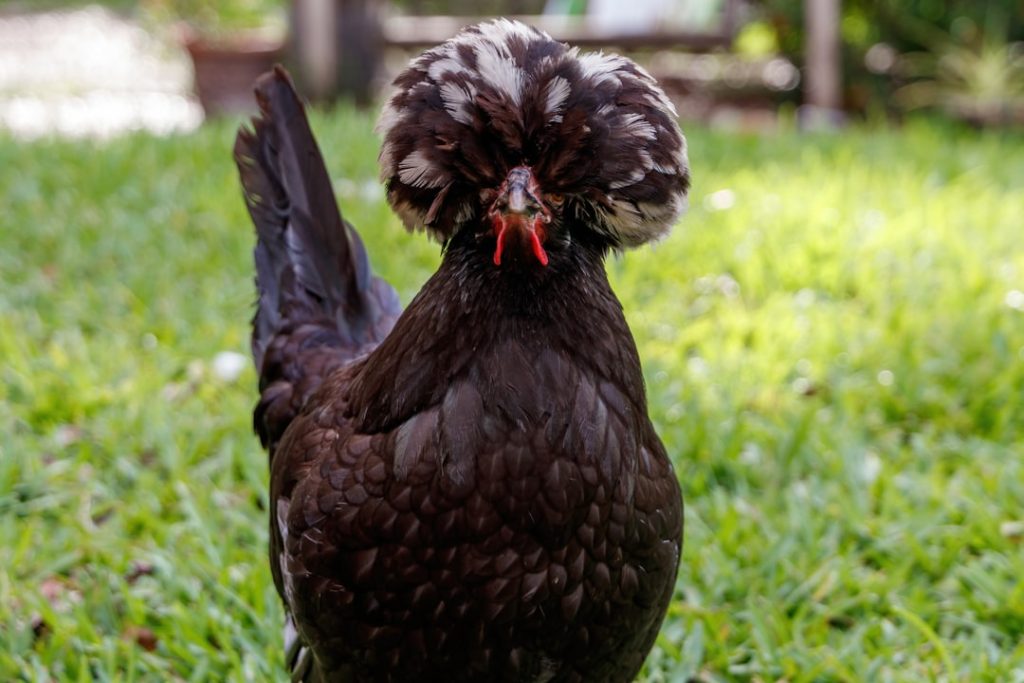When keeping chickens, it is essential to understand the applicable regulations, which vary by region and municipality. These rules may include requirements for permits or licenses, zoning laws that limit the number of chickens allowed per property, and specifications for coop size, distance from neighboring properties, and waste management. Some areas impose restrictions on the types of chickens permitted, often prohibiting roosters due to noise concerns.
Regulations may also govern the slaughter of chickens and the sale of eggs. Thorough research into local laws is crucial to ensure compliance and avoid potential fines or legal issues. Familiarizing oneself with these regulations is necessary for lawful chicken-keeping operations.
Table of Contents
- 1 Factors to consider when determining the number of chickens
- 2 Local zoning laws and restrictions
- 3 Best practices for keeping chickens without a licence
- 4 Potential challenges and solutions
- 5 Resources for further information
- 6 Conclusion and final considerations
- 7 FAQs
- 7.1 What is the legal limit for keeping chickens without a licence?
- 7.2 Do I need a licence to keep chickens?
- 7.3 What are the regulations for keeping chickens in urban areas?
- 7.4 Are there any health or safety considerations when keeping chickens?
- 7.5 What should I do if I want to keep more chickens than the legal limit?
Key Takeaways
- Understanding the regulations:
- Research and understand the local and state regulations regarding keeping chickens.
- Check for any specific rules or restrictions that may apply to your area.
- Factors to consider when determining the number of chickens:
- Consider the space available for the chickens to roam and forage.
- Take into account the amount of time and effort you can dedicate to caring for the chickens.
- Local zoning laws and restrictions:
- Check the local zoning laws to ensure that keeping chickens is allowed in your area.
- Be aware of any restrictions on the number of chickens or specific coop requirements.
- Best practices for keeping chickens without a licence:
- Provide a secure and predator-proof coop for the chickens.
- Ensure the chickens have access to fresh water, proper nutrition, and regular veterinary care.
- Potential challenges and solutions:
- Address noise concerns by keeping the coop clean and providing enrichment for the chickens.
- Communicate with neighbors and address any concerns they may have about keeping chickens.
- Resources for further information:
- Contact local agricultural extension offices for guidance on keeping chickens.
- Join online forums or community groups to connect with experienced chicken keepers.
- Conclusion and final considerations:
- Keeping chickens can be a rewarding experience with proper research and preparation.
- Always stay informed about any changes in regulations or local ordinances regarding keeping chickens.
Factors to consider when determining the number of chickens
Space and Comfort
The amount of space available for the chickens is a crucial consideration. Chickens need room to roam and forage, so it’s essential to ensure they have enough space to move around comfortably. Overcrowding can lead to stress, aggression, and health issues among the chickens.
Coop and Run Size
The size of the coop and run is another vital factor to consider. The coop and run should be large enough to accommodate the number of chickens you plan to keep, with enough space for them to thrive. Overcrowding can have serious consequences, including stress, aggression, and health problems.
Time and Effort, Purpose and Goals
Keeping chickens requires a significant amount of time and effort, including daily care such as feeding, watering, cleaning the coop, and collecting eggs. The more chickens you have, the more time and effort will be required to care for them properly. It’s essential to realistically assess your ability to care for a certain number of chickens before deciding on the size of your flock. Additionally, consider the purpose of keeping chickens – whether it’s for a sustainable source of eggs for your family or to sell eggs or meat – to determine the ideal number of chickens for your needs.
Local zoning laws and restrictions

Local zoning laws and restrictions play a significant role in determining whether you can keep chickens on your property. Zoning laws are put in place by local governments to regulate land use and development, including the keeping of animals such as chickens. These laws may dictate whether chickens are allowed in residential areas, as well as specific requirements for coop size, setback distances from property lines, and the number of chickens allowed per property.
It’s important to research the zoning laws in your area to determine whether keeping chickens is permitted and what specific regulations apply. In some areas, obtaining a permit or license may be required to keep chickens on your property. This process may involve submitting an application, paying a fee, and meeting certain requirements set forth by the local government.
It’s important to familiarize yourself with the permit process and ensure that you are in compliance with all requirements before keeping chickens on your property. Failure to obtain the necessary permits or licenses can result in fines or legal action, so it’s crucial to adhere to local regulations.
Best practices for keeping chickens without a licence
If keeping chickens without a license is permitted in your area, it’s important to follow best practices to ensure the health and well-being of your flock. First and foremost, it’s essential to provide adequate housing for the chickens. This includes a secure coop that protects them from predators and inclement weather, as well as a spacious run for them to roam and forage.
Additionally, providing a balanced diet that includes commercial feed, fresh water, and access to grass and insects is crucial for their health. Regular cleaning and maintenance of the coop and run are also essential for keeping chickens without a license. This includes removing waste regularly, providing clean bedding, and ensuring that the coop is well-ventilated.
Regular health checks and access to veterinary care are also important for keeping chickens healthy and preventing the spread of disease within the flock. By following these best practices, you can ensure that your chickens are well-cared for and thriving without a license.
Potential challenges and solutions
Keeping chickens without a license can present several potential challenges. One common challenge is dealing with neighbors who may be opposed to having chickens in the area due to noise, odor, or other concerns. Open communication with neighbors about your plans to keep chickens can help address any potential issues and build goodwill within the community.
Additionally, taking steps to minimize noise and odor from the coop, such as regular cleaning and proper waste management, can help alleviate concerns. Another potential challenge is ensuring that the chickens are kept safe from predators. This can be particularly challenging in urban or suburban areas where predators such as raccoons, foxes, and stray dogs may pose a threat to the flock.
Installing secure fencing around the coop and run, using motion-activated lights or sound deterrents, and locking up the coop at night can help protect the chickens from predators.
Resources for further information

Local Resources for Zoning Laws and Regulations
For further information on keeping chickens without a license, local agricultural extension offices or animal control agencies can provide valuable guidance. They may have information on zoning laws and regulations regarding chicken keeping in your area.
Online Communities for Backyard Chicken Keeping
Online forums and social media groups dedicated to backyard chicken keeping can provide valuable insights and advice from experienced chicken owners. These communities can offer a wealth of knowledge and support as you navigate the process of keeping chickens without a license.
Comprehensive Resources for Raising Backyard Chickens
There are also numerous books and websites dedicated to raising backyard chickens that can provide detailed information on best practices for chicken care. These resources can help you learn about everything from coop design to nutrition and health care for your flock.
Conclusion and final considerations
Keeping chickens without a license can be a rewarding experience that provides fresh eggs, natural pest control, and a connection to nature. However, it’s important to thoroughly research local regulations and best practices before embarking on this endeavor. By understanding the regulations that govern chicken keeping in your area, considering factors such as space and time commitment when determining the number of chickens to keep, adhering to local zoning laws and restrictions, following best practices for chicken care without a license, addressing potential challenges with open communication and proactive measures, and utilizing resources for further information, you can ensure a successful and compliant chicken-keeping experience.
With careful planning and consideration of local regulations, you can enjoy the many benefits of keeping chickens without a license while being a responsible member of your community.
If you’re wondering how many chickens you can keep without a license, you may also be interested in learning about different chicken coop ideas. Check out this article on large chicken coop ideas for inspiration on how to create a comfortable and spacious living space for your feathered friends.
FAQs
What is the legal limit for keeping chickens without a licence?
In many places, the legal limit for keeping chickens without a licence is typically around 50 to 100 birds. However, this can vary depending on local regulations, so it’s important to check with your local government or agricultural department.
Do I need a licence to keep chickens?
In some areas, you may need a licence to keep chickens, especially if you exceed the legal limit for unlicensed poultry keeping. It’s important to research and understand the regulations in your specific location to ensure compliance with the law.
What are the regulations for keeping chickens in urban areas?
Many urban areas have specific regulations regarding the keeping of chickens, including limits on the number of birds allowed and requirements for coop size and placement. It’s important to check with your local government or homeowner’s association for specific guidelines.
Are there any health or safety considerations when keeping chickens?
When keeping chickens, it’s important to consider health and safety factors such as disease prevention, proper waste management, and predator protection. Following best practices for chicken care can help ensure the well-being of the birds and minimize potential risks to the surrounding community.
What should I do if I want to keep more chickens than the legal limit?
If you want to keep more chickens than the legal limit for unlicensed poultry keeping, you may need to apply for a licence or permit. Be sure to research the specific requirements and procedures for obtaining a licence in your area, and be prepared to comply with any additional regulations or inspections.
Meet Walter, the feathered-friend fanatic of Florida! Nestled in the sunshine state, Walter struts through life with his feathered companions, clucking his way to happiness. With a coop that’s fancier than a five-star hotel, he’s the Don Juan of the chicken world. When he’s not teaching his hens to do the cha-cha, you’ll find him in a heated debate with his prized rooster, Sir Clucks-a-Lot. Walter’s poultry passion is no yolk; he’s the sunny-side-up guy you never knew you needed in your flock of friends!







